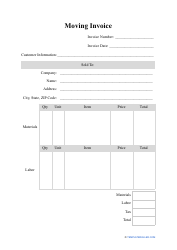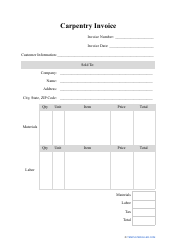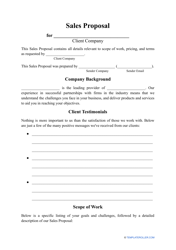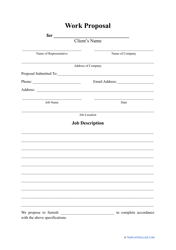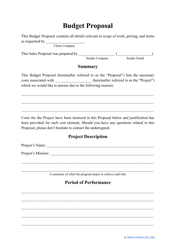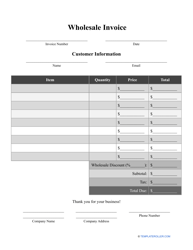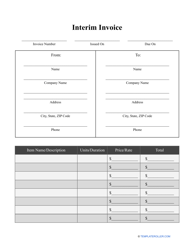Proposal Vs Invoice

Small businesses and large companies alike can benefit from maintaining proper records of every sale and purchase and separating the documents of the entity into different categories and folders no matter what kind of filing system you use, folders of printed invoices and receipts or digital files and spreadsheets that describe the specifics of every deal you have ever closed. Our guide will help you to make sense of the essential sales documents every vendor needs to fill out in order to promote the organization to current and potential clients, monitor the financial performance of the business, improve the accounting process, and learn more about the variety of statements completed by the accounting department of the entity daily, weekly, or monthly - a Proposal vs Invoice, an Invoice vs Quote, etc.
What Is a Proposal?
A Proposal is a formal statement drafted by the business to persuade a potential client to make a purchase. Whether a customer has asked your organization to make an official offer describing the services you can provide or you send this document unsolicited, traditionally, the text of the Proposal explains what makes your business stand out among the competitors, identifies the needs of the buyer, records the prices of every item be it a product or services, and outlines how the entity can satisfy the demands of the client who needs to be supplied with certain items or requires different services for the ongoing or upcoming project.
What Is the Difference Between Proposal and Invoice?
Sellers prepare Invoices to specify the items and their prices asking their customers to pay for the goods and services they received; a Proposal, on the contrary, is a document that describes what the organization is able to offer to the client - its objective is to convince the latter to sign a deal in the first place. An Invoice is a handwritten or typed document that obliges the purchaser to provide the payment using one of the methods indicated in the form while a Proposal does not mean the prospective buyer will go ahead with their intention to formalize an agreement.
Bill of Sale Vs. Invoice
A Bill of Sale is a written document that includes the particulars of the ownership transfer from one party to the other. In the majority of cases, it is signed and formalized when the money is changing hands - one individual or entity gets the payment while the other receives the item they paid for, which means the payment is immediate. Unlike a Bill of Sale, an Invoice is usually sent out to request payment - the payment deadline may be set weeks and sometimes even months after the purchaser receives goods and services. Additionally, an Invoice is prepared by a business or freelancer that sells products on a regular basis while a Bill of Sale is a contract commonly used by individuals to formalize the transfer of property.
Purchase Order Vs. Invoice
A Purchase Order refers to the buyer's request to sell them goods and services and allows the business to keep tabs on their stock while an Invoice fulfills that request confirming the specifics of shipment and listing the items the purchaser has asked the vendor for and helps the accountant to calculate revenue and taxes. While a Purchase Order is filled out and sent at the start of the negotiations to inform the seller about the wishes of the buyer, an Invoice closes the deal by asking the purchaser to send the payment for the services rendered and goods delivered.
Invoice Vs. Receipt
When it comes to comparing a Receipt and an Invoice, it is evident they are comparable in their nature - both documents verify the financial terms of the deal between the seller and the buyer. However, an Invoice is composed before the customer sends their payment serving as a formal request for payment while a receipt is drafted immediately after the payment has been received being a confirmation of payment. There is another difference as well - an Invoice has to feature a full breakdown of items, the conditions of payment and often delivery, and the addresses of the parties, and a receipt basically contains the amount paid by the buyer and the balance due.
Quote Vs. Invoice
Quotes and Invoices are statements drafted by the business that wishes to make sure the organization that renders services and delivers goods is duly compensated for its efforts. Yet, there are certain distinctions between these two documents - a Quote is not enforceable, it simply offers the services, labor, and materials the entity in question is able to provide, while the provisions of the Invoice must be complied with otherwise the client receiving it may face additional charges, penalties, or even legal action. A Quote indicates the prices of products and services informing the client about them, and an Invoice is completed after the deal is finalized and the items mentioned in the Quote were already delivered to the customer.
Related Topics:
